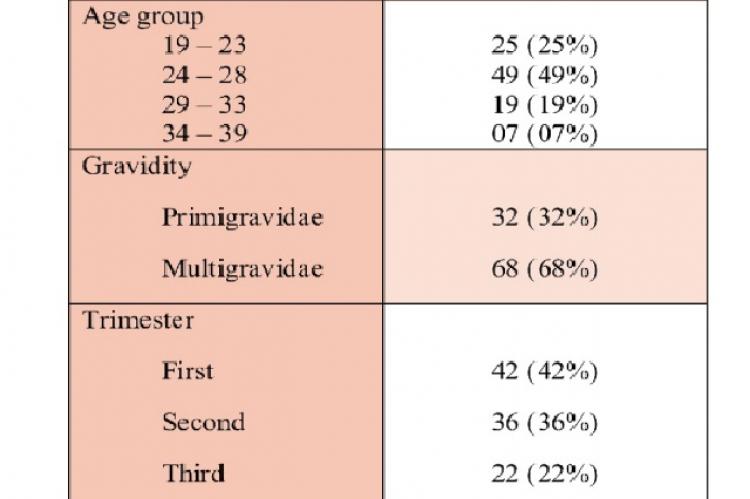Malaria which is a public health problem in endemic countries has serious consequences during pregnancy. It is one of the major cause of maternal and child mortality. This study was conducted to ascertain the prevalence of malaria in pregnancy in Lokoja, North-central Nigeria. A total of 100 pregnant women participated in the study. Thick and thin blood films stained with Giemsa were used for malaria diagnosis using a light microscope. Atotal of 30 (28.8%) pregnant women were positive for malaria. Maternal age (>24) and gravidity (primigravidae) were among factors identified to increase the risk of malaria infection. Anaemia was observed in 21 (70%) of the 30 pregnant women infected. Our findings suggest that primigravidae had high prevalence of malarial infection while majority of the infected pregnant women were in the third trimester of pregnancy. Strategies for the control and prevention of malaria during pregnancy should therefore be fully implemented particularly in endemic areas.
View:
- PDF (540.12 KB)


